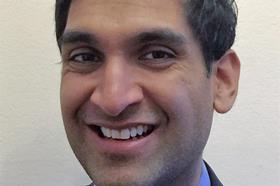Providers and commissioners are coming forward to work together more strategically to deliver better outcomes for their local populations, say Dr Gordon Macmillan and Dr Chirag Bakhai

Across the country, NHS commissioners and providers are rethinking ways of working in order to deliver better outcomes for their populations. Clinical commissioning groups are increasingly consolidating to work at scale, serving larger footprints through varied mechanisms including joint working relationships, shared executive teams, or formal mergers.


The focus of a new joint report between NHS Clinical Commissioners and NHS Providers Driving forward system working: a snapshot of early progress in collaborative commissioning explores new and emerging arrangements between clinical commissioning groups and providers, aimed at working together to improve the planning and delivery of services.
Some systems are beginning to define the role of the CCG as a “strategic commissioner”, or “system steward”. Alongside this, a prime provider or an alliance of providers may take on some of the more transactional activities previously performed by CCGs, such as scoping out services and designing pathways.
Other systems are trying to move away from the term “commissioning” altogether. Terminology aside, it’s clear that the landscape is evolving at pace, often driven by closer collaboration “at place” as well as “at scale”. In this piece, we explore what this means in practice for our two, very different, local systems.
The context is quite different where we work, but our examples from Luton and Hillingdon demonstrate progress towards collaboration and new relationships. Luton CCG covers a population of 230,000 and is part of the Bedfordshire, Luton and Milton Keynes Integrated Care System, currently operating as a shadow ICS.
In addition to working “at scale”, with a joint executive team and joint accountable officer across the three CCGs, there is an obvious focus on transformation “at place”, with tangible benefits for Luton’s population arising from new ways of working.
In Hillingdon, hospital services, primary care, community and voluntary services have formed an alliance of providers, the Hillingdon Health and Care Partners alliance. HHCP operates in a more contained local health economy at the edge of the North West London Sustainability and Transformation Partnership. The Hillingdon providers serve a population of around 300,000 and have a particular focus on improving care for older people.
Getting the basics right
Experience from both of our local systems emphasises the importance of establishing a shared vision between partners.
In Luton, a key enabler has been the strength of the relationship between the CCG and the local authority. In June 2017, the leaders of Luton CCG and Luton Borough Council signed the Luton Health and Wellbeing Concordat, a statement of intent to align strategic commissioning functions across both organisations through closer collaboration, integrated working and co-commissioning arrangements.
While relationships with the acute provider have been slower to mature, requiring time, openness and leadership to shift ingrained culture and behaviour across the system, there has been real progress in the last year, driven by greater transparency and trust.
Experience from both of our local systems emphasises the importance of establishing a shared vision between partners
Such change has been further catalysed by the pressures facing the provider through activity and workforce challenges, aligning the interests of partners in the Luton system and uniting all in the realisation that working together is essential for sustainability.
In Hillingdon, the journey has not been entirely straightforward. The CCG and the provider alliance first looked to transfer a capitated budget, but the risk was eventually deemed too great and both sides agreed to change tack. Instead, the parties focused on getting the basics right.
This involved agreeing key priorities and appointing for each an executive and clinical lead. A shared methodology has now been agreed for “transformation”, which is primarily based on data sharing to define quantified system wide improvement opportunities.
Sharing resource and insight
With basic agreement and shared vision in place, Luton and Hillingdon have been able to move beyond traditional organisational boundaries. For example, members of Hillingdon CCG sit within the HHCP clinical working groups that discuss the providers’ approach to pathway and service redesign.
There is also much greater transparency; the provider alliance operates open book accounting, allowing for more honest and open conversations during contract meetings. Meanwhile, the CCG shares its commissioning intentions with HHCP at the earliest opportunity to ensure all partners are on the same page.
As the BLMK ICS has developed, the status quo of fragmented analytical teams and “multiple versions of the truth” has been seen to impede effective system working and population health management.
As the BLMK ICS has developed, the status quo of fragmented analytical teams and “multiple versions of the truth” has been seen to impede effective system working and population health management
There is determination to align data, analytics and insight across partners; with the recent recruitment of a chief information officer across BLMK, work is progressing at pace to realise the aspiration of a “single version of the truth” across the system.
“At place” in Luton, with ever greater pooling of budgets and integrated working, the CCG and local authority recognise that transparency is essential; although challenges still arise, issues are discussed with trust, respect and mutual understanding of each other’s positions.
Transparency between the CCG and acute provider has also progressed, with a clear intent to proactively share data, work together to understand trends and take joint action to enhance system sustainability, resulting in collaborative initiatives such as the Joint Elective Plan.
Focusing on local needs
Across both our systems, partners are compelled to work together by a shared focus on improving the lives of the local population.
In Luton, the CCG and local authority have committed to work together on all matters affecting the wellbeing of residents, going beyond the usual remit of the NHS to include public health, social care and the wider determinants of health.
Pooled and aligned budgets are used in commissioning services designed for Luton’s population rather than adhering to traditional commissioning silos.
The CCG and local authority have co-designed and procured an integrated wellbeing service called Total Wellbeing Luton, bringing together social prescribing, healthy lifestyle services and improved access to psychological therapies into a single point of access, delivering integrated holistic care focused on the needs of the individual.
The needs of the people of Hillingdon are now assessed by both the commissioner and providers. As a strategic commissioner, the CCG set out “the what”, with the provider alliance determining “the how” of delivery
The needs of the people of Hillingdon are now assessed by both the commissioner and providers. As a strategic commissioner, the CCG set out “the what”, with the provider alliance determining “the how” of delivery. For providers, this is new territory.
HHCP has, therefore, partnered with its local Academic Health Science Network to assess the needs of its population for a particular service. The providers then work with the AHSN to review service configurations elsewhere in the country and determine the best fit for the people of Hillingdon; this plan is then presented to the CCG for a commissioning decision.
What next?
Although there is further to travel, we are making clear progress. It is apparent that building strong relationships, developing trust and changing culture needs time to be done effectively.
Following the establishment of shared key priorities, the Hillingdon system will produce a five year plan. This will explore how unnecessary costs will be stripped out of the system and reinvested into local services to benefit the population.
In Luton, the CCG and local authority have just co-located; while not essential for collaboration, this should remove some practical barriers to integrated working and further strengthen relationships.
Commissioners and providers are continuing to focus on transformation “at place”, with obvious determination across partners to collaborate and enhance sustainability, underpinned by a shared vision for improved health and wellbeing for Luton residents.
Driving forward system working identifies a real appetite for change, across our two systems and across the country, to strengthen collaborative, open and constructive relationships between commissioners and providers.
National leaders must now work with colleagues at the frontline to support new relationships in the context of system working and drive transformation to improve sustainability and deliver better outcomes for local populations.
Dr Gordon Macmillan is assistant director of strategy and business development at The Hillingdon Hospitals Foundation Trust.
Dr Chirag Bakhai is GP and deputy clinical chair at Luton CCG.























No comments yet